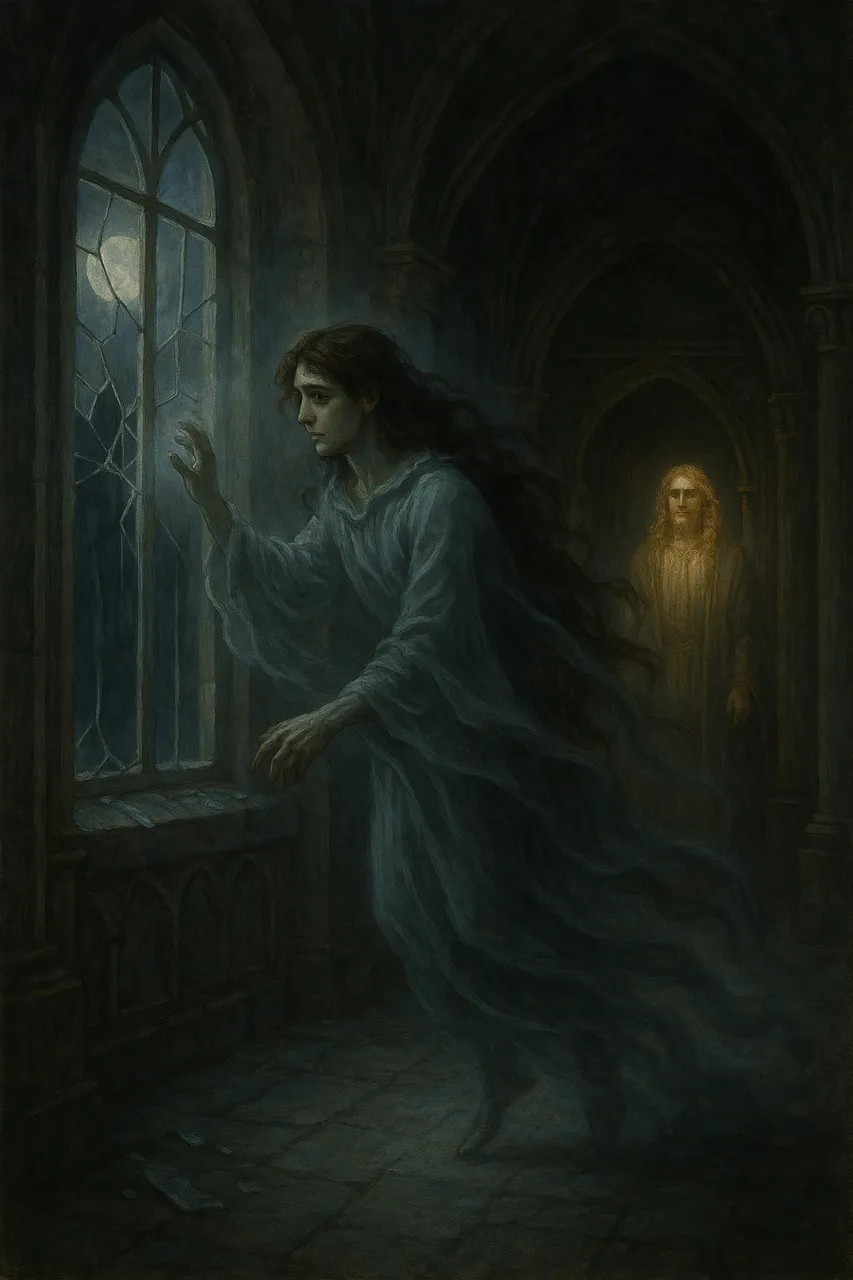Moonlight streamed across the stone walls of a mansion in Amalthura, casting trembling shadows of objects along the empty halls, and slipping through tall windows, grazing the cloak of a wandering ghost. Ariel, with his dark brown, wide eyes, stared at his reflection in a broken window. He no longer had life, but he could still feel, he could still remember.
Or perhaps it was merely the dreams of a soul?
He returned to the past: the day he first met Gabriel in the darkness of a shelter. Gabriel, the human whose eyes were filled with the flame of justice. The hand that pulled him from the shadows, the voice that promised salvation. "You should not live this way." And Ariel, enchanted by the softness of his voice, for the first time believed that perhaps there was hope.
He turned Gabriel. Was it for the bond that had formed between them? For the brotherhood that had sprouted in the dark corners of the shelter? Perhaps both. Gabriel, no longer human, became a king. He enacted a law: "Vampires shall not drink human blood." And Ariel? He defied the command. Did he have any other choice?
The moment of his execution, Gabriel looked at him. Pain blazed in his gaze. Ariel's heart, still beating within his lifeless chest, trembled, his eyes saw Gabriel framed in a golden halo of sanctity. But was this image the truth?
The blade fell.
And now, in this empty hall, Ariel's ghost remained, whispering memories. He remembered Gabriel as a saint, but was Gabriel truly sacred? Or was it merely his own compassionate eyes that saw the truth in its softest form? If Gabriel had loved him as a brother, why did he kill him? Was it truly only he who had sinned?
Or perhaps, all of this was a mental illusion, crafted by a spirit seeking redemption, rewriting the truth for itself?
Philosophical and Psychoanalytical Analysis:
The story The Ghost Who Whispers Its Memories reflects the nature of memory and its distortion. In psychoanalysis, the theory of memory reconstruction suggests that people typically recall the past not as it truly was, but as they can tolerate it. Ariel, as a spirit, has fallen prey to his own defense mechanism: he sees Gabriel as a divine savior and places the entire burden of guilt upon himself.
From a philosophical perspective, the story raises the issue of moral responsibility. Did Gabriel, as a leader, have an ethical duty to set aside his personal feelings and decide for the greater good? Or was his decision merely a reflection of the will to power, hidden under the guise of ethics?
Additionally, the story poses a deeper question: What is truth? Is what we remember the absolute truth, or merely the truth we can live with? Ariel is the victim of a bond that may be an illusion, but do we, too, alter our memories to escape from suffering in our own lives?
Ariel's ghost remains lost in the mansion of Amalthura, just as the human soul gets lost in the darkness of its distorted memories.
